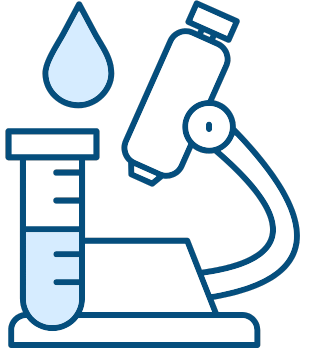Dizziness is a symptom that many of us have experienced and often don’t pay enough attention to. However, it is important to know that dizziness is not just a temporary, out-of-the-blue, uncomfortable symptom, but can be an important signal that warns of a variety of health problems.
In this article, we will explore vertigo from all angles. We will explain why dizziness occurs and what causes it. We will also look at how dizziness can affect everyday life and what we can do to overcome it.
Dizziness can be an uncomfortable symptom, but knowing what causes it and how to deal with it properly can help us get back to an active and fulfilling life
Causes of dizziness – why do you feel dizzy?
First of all, it is important to understand that dizziness is just a symptom caused by a variety of factors. Often these factors can be external, such as being swayed in a car. But sometimes, dizziness signals much more serious causes and health problems. It is therefore very important to understand and find out why you feel dizzy.
Vestibular causes of dizziness:
Everyone has experienced dizziness, but frequent episodes of dizziness, whether lasting a few seconds or longer, signal vestibular dysfunction. The vestibular system is responsible for regulating balance and provides us with information about our spatial orientation.
The most common causes of vestibular vertigo are:
Cholesteatoma: a chronic inflammation of the middle ear in which a multi-layered cornified epithelium forms in the middle ear. This disorder can be congenital but is most often the result of recurrent infection.
Acoustic neuroma: an acoustic neuroma is a benign tumour of the anterior cochlear nerve, which is responsible for providing information about environmental sounds and the position of the head. Dizziness may be accompanied by a gradual loss of hearing in one ear, ringing or a feeling of fullness in the ears.
Autoimmune inner ear disease: this disease is caused by a malfunctioning immune system, where the defence system starts to attack the body’s cells that affect the ear. Autoimmune inner ear disease can include various diagnoses such as Cogan’s syndrome, Wegener’s granulomatosis, systemic lupus erythematosus, Sjogren’s syndrome and rheumatoid arthritis.
Benign paroxysmal vertigo: this is a transient and episodic attack of vertigo caused by movements of the head, most commonly characterised by dizziness and nystagmus (involuntary, repetitive movement of the eye). It is one of the most common causes of dizziness, accounting for as many as 39% of cases.
Cervicogenic vertigo: a syndrome of instability and disorientation associated with pathologies of the cervical spine such as trauma, arthritis, etc.
Vestibular neuronitis: inflammation of the anterior cochlear nerve, causing severe head rotation. It can be viral or bacterial in origin, and is most commonly found in people aged 40-50 years.
Mal de Debarquement Syndrome (MdDS): a rare disorder, usually occurring after prolonged passive movement, such as an airplane flight or a boat cruise. Usually characterised by constant dizziness, swaying sensations, instability and balance problems.
Meniere’s disease: a condition caused by increased fluid accumulation in the inner ear. Most commonly affects middle-aged people.
Changes in middle ear pressure: usually caused by colds or allergies, fluid accumulation in the middle ear, sometimes caused by swelling of the Eustachian tube.
Migraine: sometimes migraine-related headaches can cause other symptoms such as dizziness, light sensitivity, disorientation.
Otitis media: this is a bacterial infection of the middle ear.
Otosclerosis: a disease of the ear with symptoms such as increasing numbness, tinnitus and dizziness.
Otoxicity: damage to the nerve cells of the inner ear caused by certain drugs or chemicals.
Perilymphatic fistula: rupture of the oval window, a small anatomical structure separating the middle ear from the fluid-filled inner ear. Occurs after trauma.
Acquired or congenital defects of the semicircular canals: disturbances in the volume, composition or pressure of the endolymph which cause dizziness.
Non-vestibular causes of dizziness:
Non-vestibular causes of dizziness may be indirectly related to the functioning of the vestibular system. These include various vascular, cardiac, nervous system or other health problems that cause temporary or long-term dizziness.
Degenerative changes in the spine: can put pressure on the arteries in the spine and interfere with blood supply to the brain.
Aneurysm: dilation of blood vessels that can cause cerebral blood flow problems.
Arrhythmia: an irregular heartbeat that can interfere with blood flow to the brain, causing low blood flow to the brain.
Atherosclerosis: a systemic disease of the blood vessel wall, a blockage of blood vessels, which can disrupt blood supply to the brain.
Carotid sinus reflex: the carotid sinus reflex regulates blood pressure by constricting the blood vessels in the lower limbs and dilating the blood vessels in the head when blood pressure in the carotid artery drops. This ensures adequate cerebral blood flow.
Medication: some medicines can cause temporary dizziness.
Stress, tension or fatigue: constant tension or stress can disrupt brain activity and cause dizziness.
Tumours: Brain tumours can affect the brain stem, the part of the cortex that controls muscle movements, or the cerebellum, and cause dizziness.
Visual impairment: impaired or distorted vision can cause disorientation and dizziness.
Dehydration: lack of fluid in the body can affect blood pressure and blood supply to the brain.
Heart valve abnormalities: problems with the heart valves, most commonly the aortic valve, can impair blood flow to the brain.
External factors
Dizziness can be caused not only by a variety of health problems, but also by various external factors. Most often these factors are related to the environment or short-term physical changes.
External factors that can cause dizziness:
Fatigue and exhaustion, especially with excessive activity or insufficient sleep, can also cause dizziness.
Rapid movements and turns, such as braking the car suddenly or getting out of bed. Long car journeys can cause swaying and dizziness.
Spatial environmental disorientation, often after a long flight or boat cruise. The brain reacts to sudden changes in environment and pressure, which can cause dizziness until we adjust.
Bright lights and loud noises can overload the sensory system and cause discomfort, which often results in dizziness.
Different images or prolonged concentration on a screen can cause dizziness. For example, watching a film or video game with rapidly changing images, sitting in a 3D cinema.
Tips on what to do when you feel dizzy
Dizziness can be a very uncomfortable symptom and interfere with our daily activities. Here are some tips on what to do when you feel dizzy.
- Sit or lie down: if you feel that your balance is impaired or that objects around you are spinning, the best thing to do is to sit or lie down on a bed, the floor or another safe surface until the episode has passed. This will help prevent injury and reduce stress on the body. If you are standing and have nowhere to sit, lean against a wall, stand or other stable object.
- Slow down your breathing: deep and slow breathing techniques can help calm the nervous system and reduce dizziness. Slowly inhale through your nose and exhale through your mouth a few times to reduce the feeling of dizziness.
- Consume enough fluids: dehydration can be one of the causes of dizziness, so it is important to maintain a good fluid balance in the body. Drink plain water, teas or broths are also suitable. This will help the body to replenish lost fluids and feel better.
- Use IV therapy: IV therapy is a great way to get rid of dizziness and to fight the various causes of it. Intravenous therapy helps to fight all kinds of dizziness and migraine pain, maintains fluid and nutrient balance in the body and reduces fatigue.
- Consult your doctor: If your episodes of dizziness are prolonged, recur frequently or if you have other symptoms, consult your doctor immediately as they may indicate a more serious health problem.
Although such problems should only be evaluated by a specialist (otorhinolaryngologist), you can also consult your family doctor. The family doctor will examine the ear to determine whether the problem is inflammation, a problem with the eardrum, or something else entirely. Your GP can also prescribe treatment straight away, such as antibiotics, painkillers or other medicines to reduce symptoms.
- Get more rest: constant tiredness and stress can cause dizziness. Avoid excessive activity and stress and make sure you get enough rest and quality sleep to avoid dizziness.
- Exercise: If you feel dizzy, you should do up to 15 minutes of exercise each day specifically to reduce dizziness. This exercise should be done 3 times a day. This is a simple exercise designed to control the inner parts of the ear. Both your family doctor and your otorhinolaryngologist can show you what the exercises look like and how to do them correctly.
It is important to remember that these tips are general guidelines. Dizziness can have many causes, so it is important to be aware that one treatment cannot be the right one for all cases. If the dizziness becomes persistent, intense or is accompanied by other symptoms such as impaired speech, immobility or other neurological signs, make sure you seek medical advice.
It is important to remember that these tips are general guidelines. Dizziness can have many causes, so it is important to be aware that one treatment may not be appropriate for all cases. If the dizziness becomes persistent, intense or is accompanied by other symptoms such as impaired speech, immobility or other neurological signs, make sure you seek medical advice.
Many of us have experienced dizziness at least once in our lives. Often the dizziness is not dangerous at all, and can be caused by sudden movements, stress or not drinking enough water. But sometimes, it can be an important signal that warns of serious health problems.
Dizziness can be an uncomfortable symptom, but knowing what causes it and how to deal with it can help us get back to an active and fulfilling life. If you are experiencing dizziness, and especially if your episodes of dizziness are recurrent or prolonged, contact the expert team of doctors at Drops Clinic, who are always on hand to help you regain quality of life. We’ll help you identify the cause of your dizziness and find the best treatment for you.




